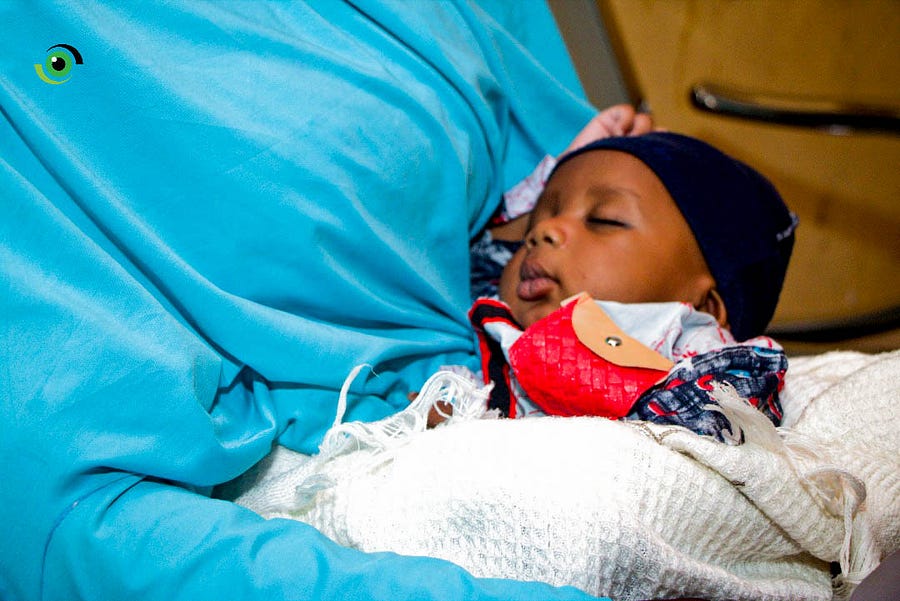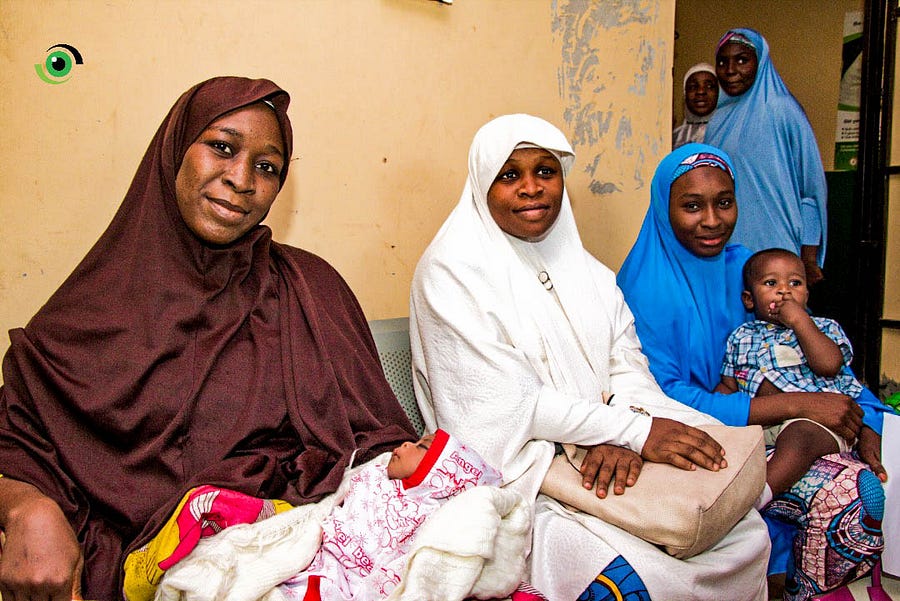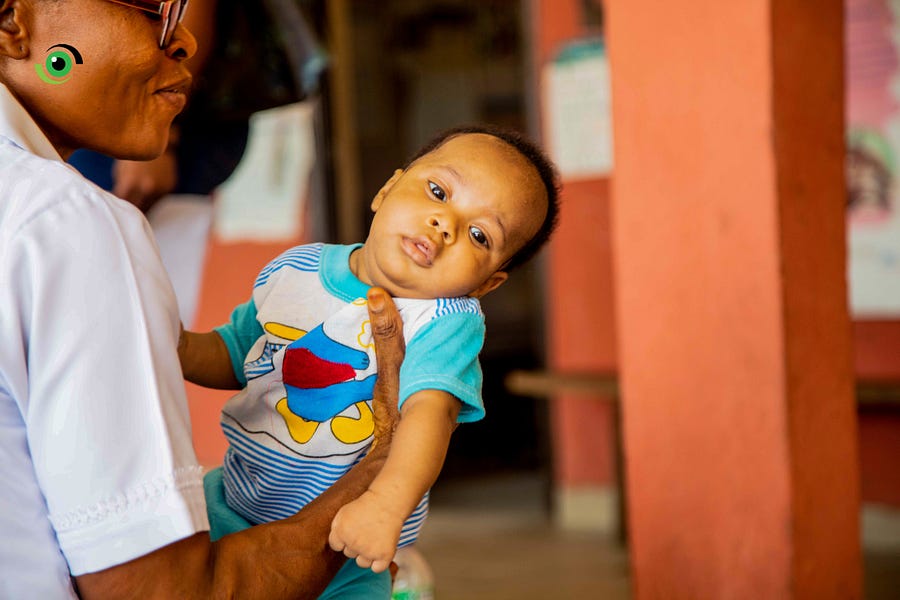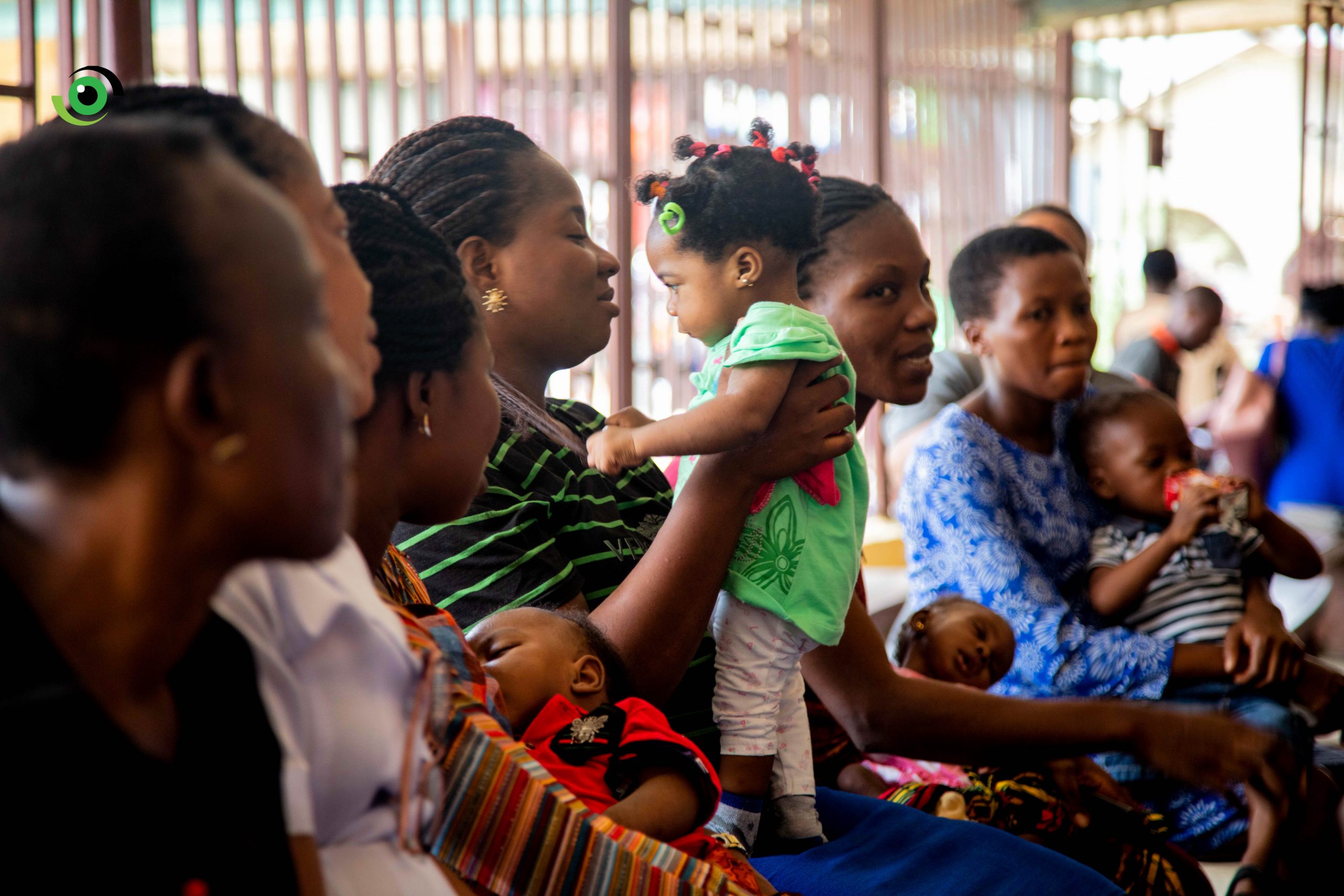Editor’s Note: If you bring up the topic of Caesarean Sections in many discussion circles, there is a likelihood you will encounter widely differing opinions. It is a topic usually charged with emotion and frequently approached with cultural, religious and traditional overtones. The Nigeria Health Watch team visited three states to better understand what women and health workers felt and thought about giving birth through C-Sections. Nigeria Health Watch Programme Manager Olubunmi Oyebanji, in this special feature, outlines the findings of this survey and highlights recommendations for Nigeria to begin to provide a more conducive environment for women to safely give birth.
In 2019 and at the start of this year, the team from Nigeria Health Watch carrying out the #GivingBirthInNigeria project set out to three states to understand attitudes and opinions about caesarean sections in Nigeria. A caesarean section (C-Section) refers to the operation of delivering a baby through incisions made in the mother’s abdominal wall and uterus. We carried out focus group discussions (FGDs) with pregnant women, nursing mothers and women who had recently undergone C-Sections to talk about their opinions on the subject. In-depth interviews were carried out with medical doctors, nurses and midwives who explained the attitudes of women and their families to C-sections. Finally, we took to the streets of Lagos, Bayelsa and Bauchi to hear what Nigerians thought about C-Sections.
Women’s perceptions of C-Sections in Bauchi, Bayelsa and Lagos
We heard the story of Asma’u, a university graduate who was a housewife, in Bauchi. She was open to having a C-Section because she said, “If it is the will of God, it is what it is”. However, she said that she had to get her husband’s blessing if that was what the doctor recommended. Asmau’s baby weighed 6 kg. Her doctors advised her to have a C-Section because her pelvis was narrow and it would be difficult for the baby to pass through. The decision lay solely with her husband, who pointed out that he was a big baby at birth and his mother didn’t have to do a C-Section, so if his mother could, then his wife also did not need one. However, he only consented to the C-Section at the hospital when he saw that Asma’u was tired of pushing and was losing her breath. Unfortunately, this story ended with both Asma’u and her baby losing their lives.

We spoke to 19 women in Bauchi. Most of the pregnant women we had interacted with in Bauchi were open to having a C-Section, but only as an “act of God”. They relied largely on their husbands to make those decisions. Some of them said they were lucky to have husbands who would have the final say and would not be influenced by other relatives. They shared stories of some of their friends whose mothers-in-law had undue influence over the affairs of their homes. While it may sound odd that a woman would be the one to influence how and where her daughter-in-law would give birth, at least, this means they are more likely to be open to going to the hospital for antenatal care.
In Bayelsa, we spoke to 14 women. The norm seems to be that relatives and society decide how a woman would give birth in her community. Many people we spoke to would rather go to a Traditional Birth Attendant (TBA) so that they are seen as the “Hebrew Women” of old. These TBAs are widely called “Massagers”. Pregnant women seem to be largely influenced by their relatives and religious beliefs. They trust what their religious leaders tell them, rather than what the hospital or doctors advise. From discussions with these women, we learned that most of them would rather have faith that they would give birth via vagina delivery by using “anointing oil” given to them by their local religious leaders and praying well. They termed it “normal delivery”, perhaps indicating that to them, having a child by C-Section is considered “abnormal”. Some said they would rather use TBAs because they are cheaper than the hospital. The women alluded to the fact that some hospitals, especially the private ones, would say a woman needed a C-Section because that was their means of making money.

In Lagos, the majority of the 12 women we spoke to during the focus group discussion mentioned that they would prefer to give birth at a government hospital, as they felt they had more experienced midwives and doctors in the government hospitals than in the private hospitals. It was also widely believed that the government hospitals had better equipment and experienced medical professionals who could carry out C-Sections than the private hospitals, that were seen as being more expensive. However, one of the women said that her sister lost a child after having a C-Section in a government hospital. After that experience, she opted to have her second child in a private hospital because in her words, “They take better care of the patients”.
From these conversations, we deduced that more women in Nigeria were open to having a C-Section than perhaps initially expected. There were even women who said they preferred to have their children by elective C-Sections, as they did not want to go through the rigour of labour for hours or days. Another trend in our discussions with the women was their preference of hospital versus TBA delivery. We found, surprisingly, that TBAs advise women to attend an antenatal clinic during pregnancy, but about 90% of these women, even after religiously attending ANC, would rather give birth in the TBA’s birth home. We also learnt that TBAs advise women to breastfeed their babies exclusively for six months, and it was a common theme during our discussions in Bauchi State, that TBAs went to pregnant women’s homes to enlighten them on the need to stay healthy and maintain proper hygiene.
From knowledge to behavioural change: A sliding scale
Most of the women we spoke to were aware of what a C-Section is, circumstances in which a woman would need to undergo one, and the importance of having a C-Section, if necessary. They gave various scenarios that would determine why a woman would need a C-section. These included preeclampsia, a breeched presentation of the baby in the womb, a narrow pelvis or foetal birth weight. The women received this information from their antenatal clinic or from relatives who have had C-Sections. The opinions of the pregnant women that were sampled in Bauchi implied that if having a C-Section was going to determine the health of the baby, they were willing to have it. On the other hand, almost all the respondents who had given birth by C-Section said that they were open to having it again if it was the “will of God”. But there were a few who had their reservations.
In Bayelsa however, a lot of the women preferred not to have a C-Section. Many alluded that for them, and most women in their communities, a C-Section was for those who were not “strong enough”. Many preferred giving birth with the assistance of a TBAs as they considered them professional. They also claimed that giving birth in the hospital was more expensive. These factors influenced the decisions made by the pregnant women on their choice of place to give birth, and whether they would agree to birth by C-Section. One other factor that influenced their choice was the intervention by relatives and religious leaders, as earlier narrated. They want to feel that they are capable of birthing their children by themselves and in turn, are seen as “strong women”. They pointed out that their pastors told them to believe that anything is possible with God, so they should hold on to the belief that the C-Section is not “meant for them”. It is clear from these discussions that religion, culture and society largely influence where and how women give birth.

Our analysis from Lagos respondents is not entirely different from what was gathered in Bayelsa — relatives and religion influence the method chosen for giving birth. The women would rather listen to their mothers and mothers-in-law, their husbands or their pastors on which methods they should use in having their babies, even if the doctors advise that the C-Section is the best option to save their life and that of their baby.
The role of health workers in promoting safe birthing practices
It would be safe to conclude that although women know what a C-Section is, and how important it is in saving the lives of pregnant women and children, some factors generally influence their choices. These dominant factors include religion, relatives, and cost of delivery.

Doctors, nurses and midwives play their roles in educating women about the need to attend antenatal clinics. They advise these women, based on medical evidence, of the need to consider C-sections as an option to save their lives or the lives of their babies, if and when necessary. They are familiar with the context in which they operate and the mindset of the women who attend their clinics, so they work to correct the negative impressions women and their relatives might have about C-Sections.
What must be done to move forward?
It is clear that the gap between perceptions, knowledge and attitudes of women when it comes to C-Section lies with the need to increase awareness among members of society who influence the decision of pregnant women when they are about to give birth. Husbands, mothers, religious leaders, traditional rulers, community influencers must be sensitised with the proper information concerning C-Sections.
Beyond this core group, every Nigerian needs to understand that a C-Section is also a normal way of giving birth. There is a critical need to promote advocacy efforts towards attitudinal change on common misconceptions around C-Sections. There may also be a need for stronger legislation that protects women when religious beliefs are at odds with evidence-based medical advice. Religious leaders and traditional rulers should also sensitised so that they can enlighten their congregation and followers about best practices, encourage better health-seeking behaviour, including the need to heed medical advice when giving birth.

Evidence from discussions with respondents in the research by the #GivingBirthInNigeria team pointed to the higher cost of C-Sections compared to vaginal deliveries. If the average Nigerian finds it difficult to pay for this service, they will naturally gravitate towards having the baby by vaginal birth or heading to a TBA, thereby potentially putting their lives at greater risk. Government hospitals should look to ensure that there is not a significant cost differential between C-Sections and vaginal births.
High-quality maternal health care is the right of every Nigerian woman. The Federal Government must be deliberate about speeding up the disbursement of the Basic Health Care Provision Fund (BHCPF) to the states that have been earmarked. State Governments also have a crucial role in ensuring that funds from the BHCPF, as well as internally generated funds, are allocated innovatively and sustainably to guarantee that these funds reach the facility and the community levels so that women do not have to suffer financial hardship or face tough choices when deciding on where to give birth. State health insurance schemes would also help reduce the financial burden placed on women when given birth, as maternal and child care should be adequately covered within the cost of health insurance. This would provide soft cushioning for women and their families that lack available funds to undergo a life-saving C-Section, if required.

The time to act for the Nigerian woman is now
Deliberate steps must be taken to achieve these goals. While the government has a clear-cut role to play, notably in legislation, reforms and implementation of existing regulations, this is not solely the government’s responsibility. Community, traditional, and religious leaders must begin to align their messaging to ensure that the greater number of women in their sphere of influence are safe during childbirth.
Advocacy organisations must continue to bring to the fore the need for a shift in the perceptions of C-Sections. Beyond these, every individual has a responsibility to create awareness for better health practices, in their sphere of influence. We must all be involved in saving the life of every Nigerian woman. Parents must take up the responsibility to educate their children. Partners should discuss their thoughts on the subject of C-Sections before marriage. Each of us may have an Asma’u in our lives that could have safely delivered her child if someone had given her and her husband the right information before it was too late.
What views and perceptions about C-Sections have you heard about in your community? How can we change unsafe birth practices in Nigeria? Let us know in the comments section below, or on our social media platforms; @nighealthwatch on Twitter, and @nigeriahealthwatch on Facebook and Instagram.





This was a very well organized and well written report. Thank you for the great information.